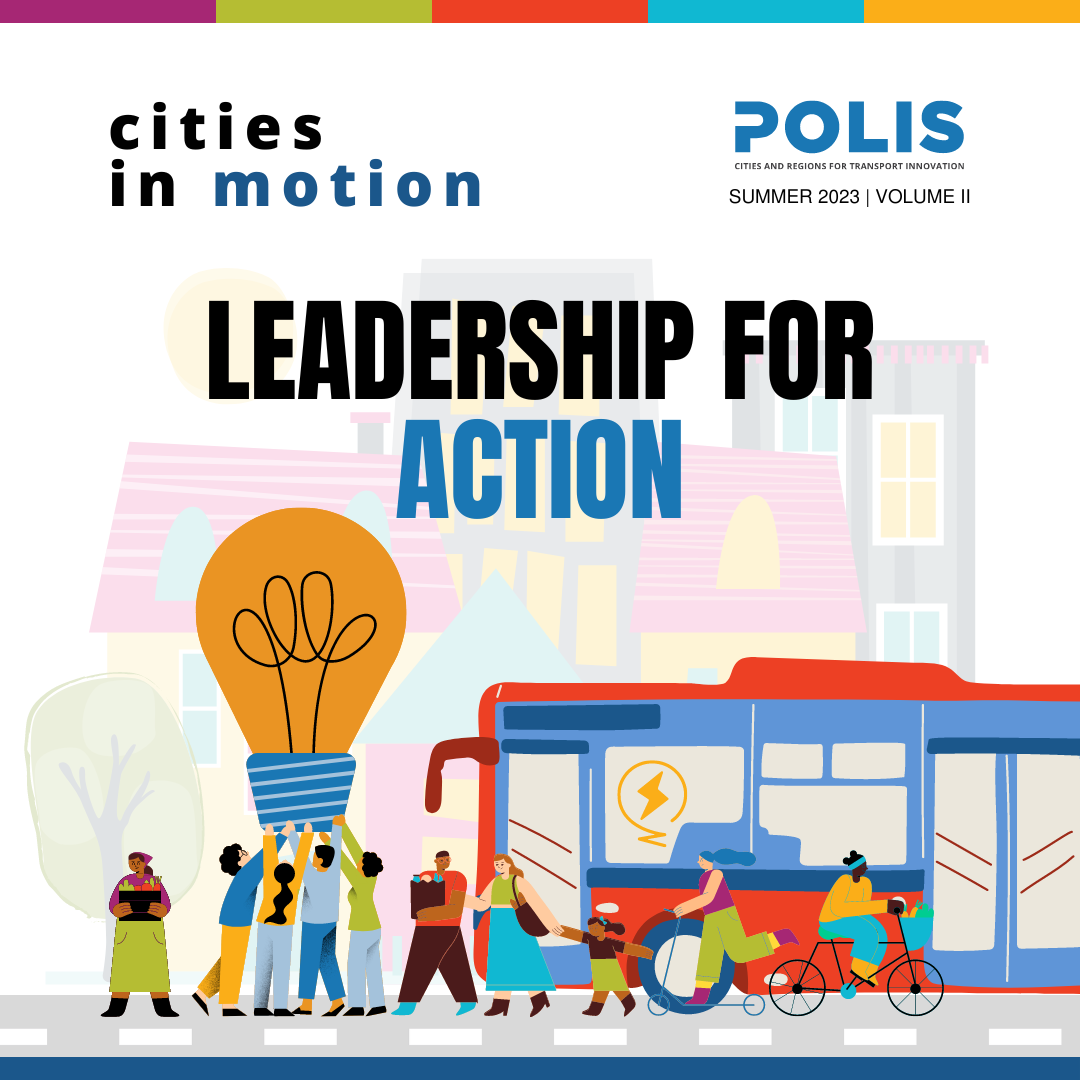Berlin
Berlin is the capital city of Germany, and one of the sixteen states of Germany. With a population of 3.4 million it is also Germany's largest city.
Berlin's urban transport development plan ("Stadtentwicklungsplan Verkehr") sets the course for a modern mobility policy in Berlin for the coming years. This integrated transport strategy considers the mobility needs of all traffic participants and it provides a policy framework for concrete measures to achieve sustainable mobility.
The city is embarking on an ambitious decarbonisation agenda, seeking to make the city’s buses emissions-free by 2030, replacing 1,600 diesel vehicles with 1,700 electric ones, as well as trialling several projects to reduce emissions via speed reduction. They also hold an air quality monitoring tool where you can view the latest data.
Active travel is also high on the agenda. In 2021, Berlin established a new 'Foot Traffic' Committee, a board that will work to improve pedestrian mobility. It focuses on planning better streets, footpaths and squares, as well as on improving traffic and school route safety. Furthermore, the German Capital has been a frontrunner in establishing new cycling infrastructure during the pandemic- and in record time.

Image credit: Flo Karr
Accessibility and inclusion have been at the heart of this. Berlin has participated in discussions on how young people’s voices can be elevated in the future of sustainable urban mobility and how our future transport systems can cater to their needs and demands. As part of the INDIMO project, the city has helped pilot Universal Design Manual for digital transport services and Universal Language Interface for transport services; as well as developing extensive guidance for the visually impaired.

Image credit: Florian Wehde
It has also been one of the first cities to take a comprehensive approach to inclusion of gender and sexuality. Berlin offers QueerCityPass — a tourist ticket for lesbian, gay, bi, trans and queer visitors that allows combined access to public transport and worthwhile discounts for queer bars, clubs, cultural events, and sightseeing hotspots. Moreover, the Senate Department for Justice, Diversity and Anti-Discrimination has been actively working in helping and supporting LGBTQIA+ people facing discrimination by providing an effective reporting system for homophobic and transphobic violence in many areas of everyday life — transport included.
Other initiatives, such as the Berliner Register, a website that tracks discriminatory attacks in the city, help with collecting and publishing citizens' reports that can be used by local decision-makers to develop measures and take targeted actions against discrimination and exclusion.
You can find out more on their website or follow them on Twitter or LinkedIn.
Modal Split

eCharge4Drivers

Smartfusion
- Related News
- Related Events
- Related Documents

POLIS x Pride 2024: Safe by design
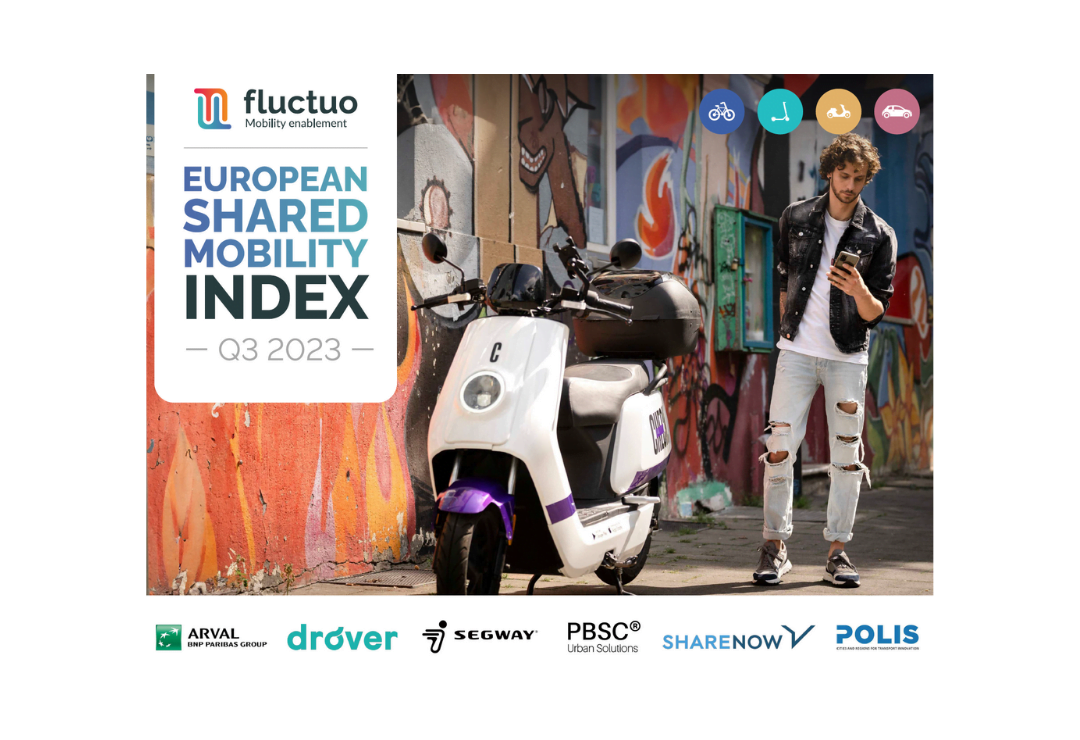
Latest Fluctuo’s European Shared Mobility Q3 Index shows Paris embracing dockless bikes following scooter ban
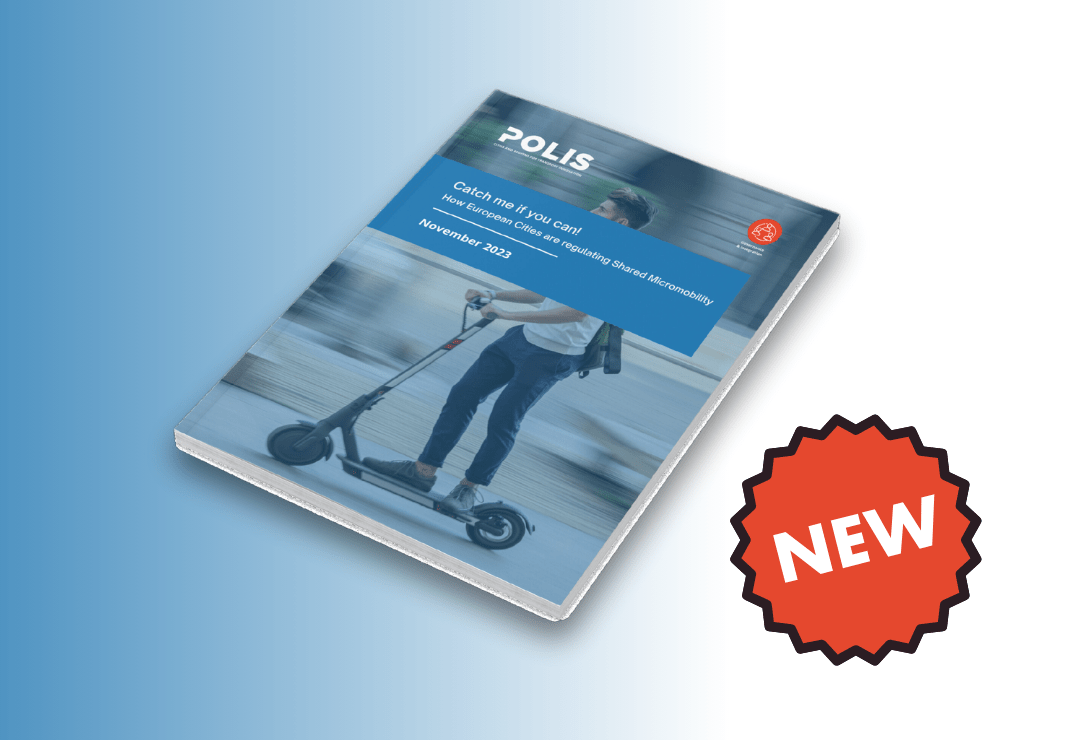
POLIS publishes new report on shared micromobility

SOLUTIONSplus walked the talk at the Walk21 Conference!
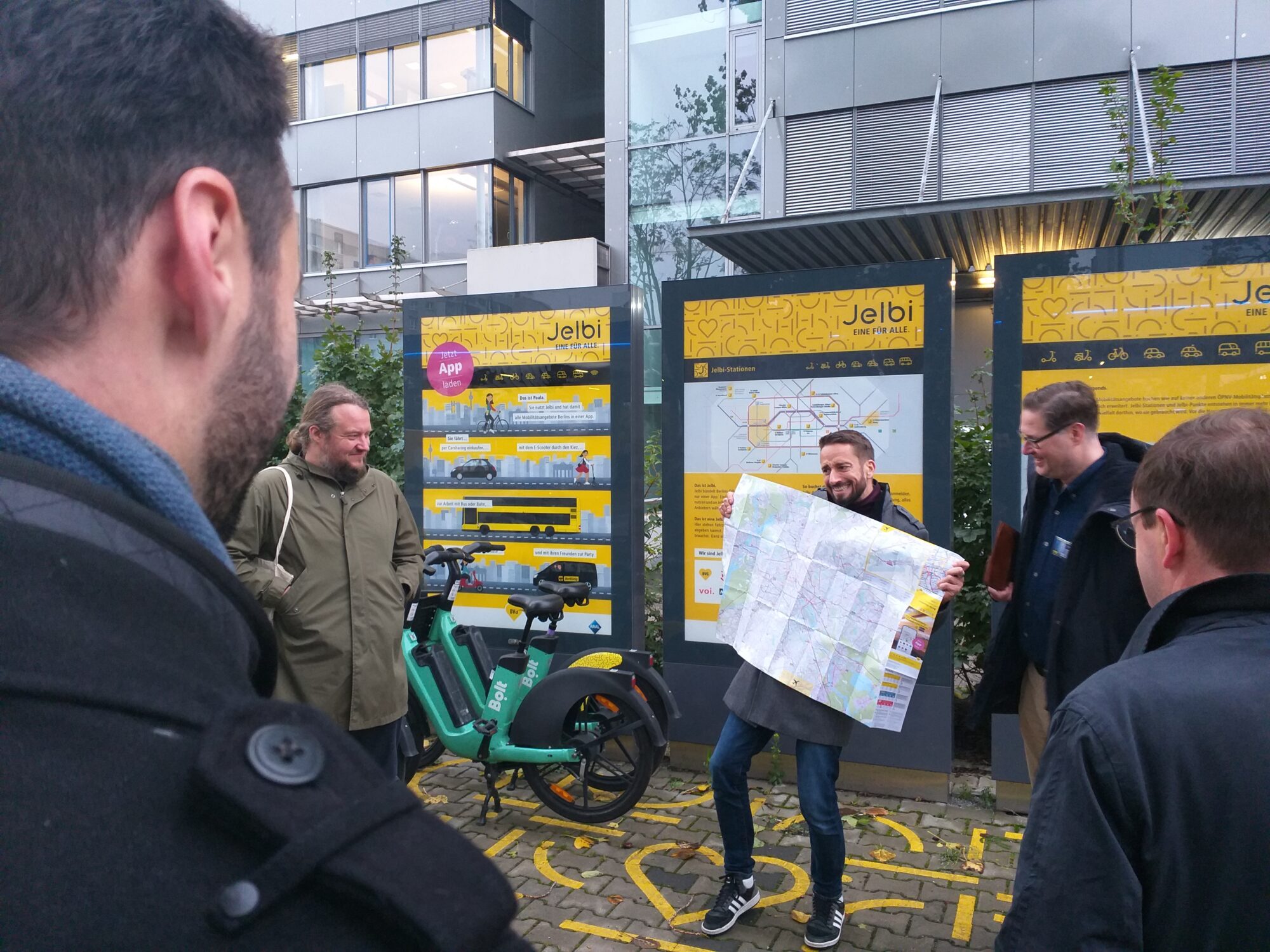
What is the future of shared mobility? Governance and Integration Working Group explores!
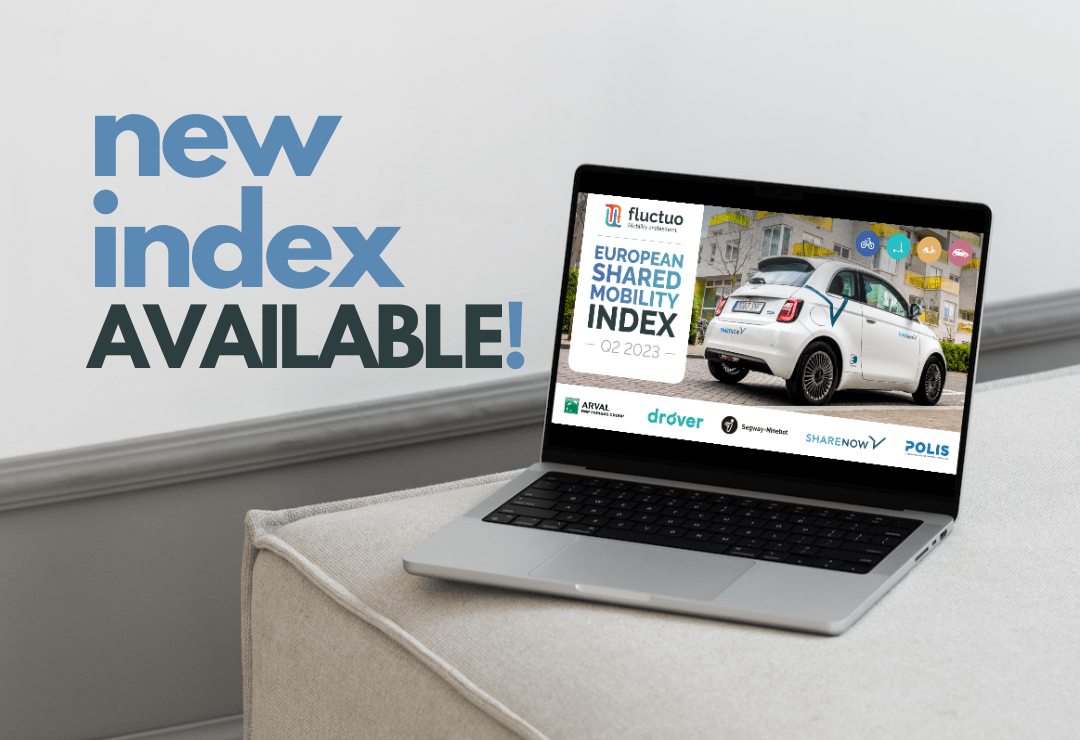
Fluctuo’s Q2 2023 European Shared Mobility Index reveals shift from scooters to bikes
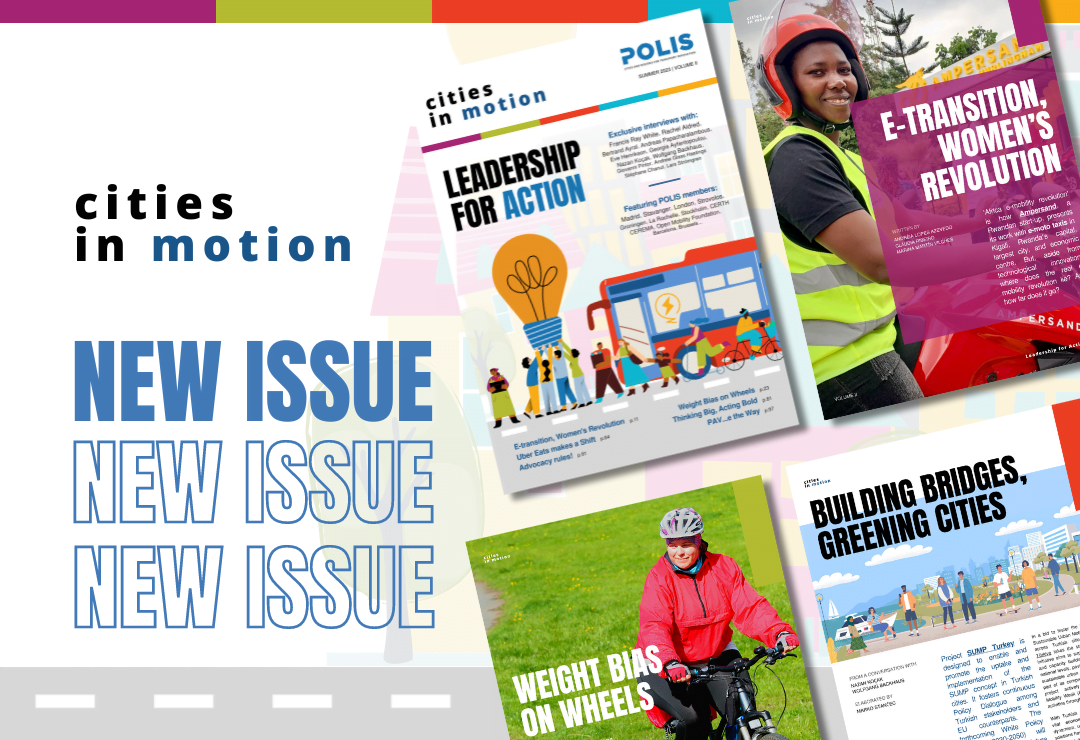
POLIS publishes second volume of magazine Cities in motion!
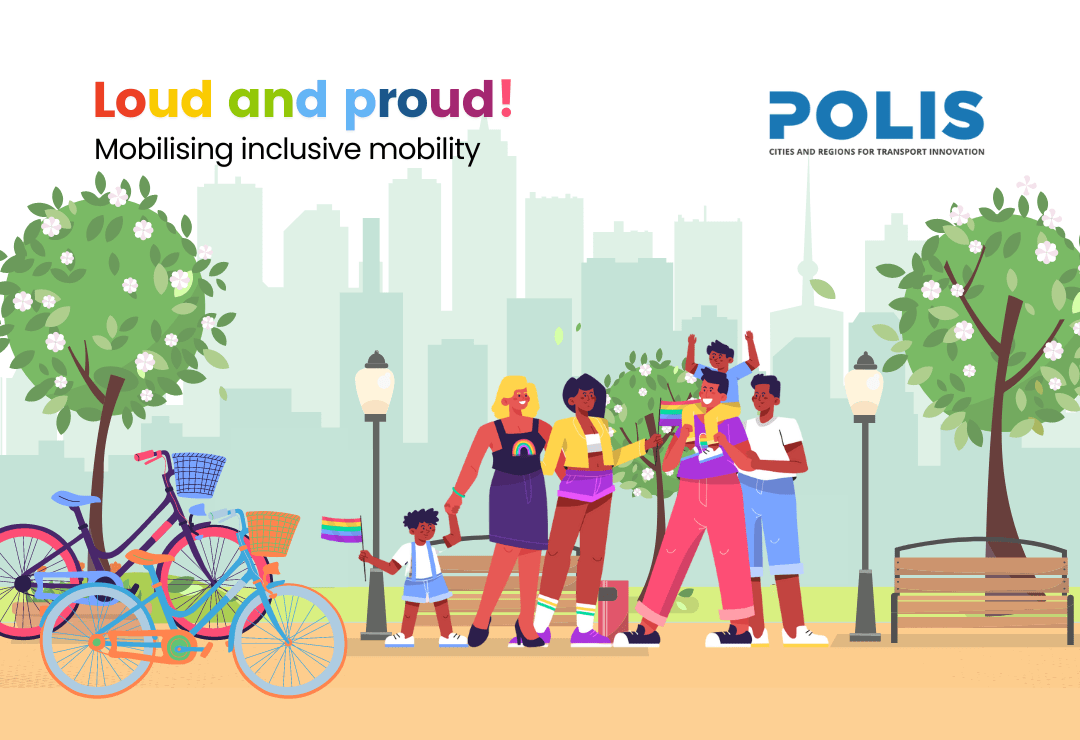
Loud, proud, and always mobilising inclusive mobility

MobiDataLab Datathon: That’s a wrap!
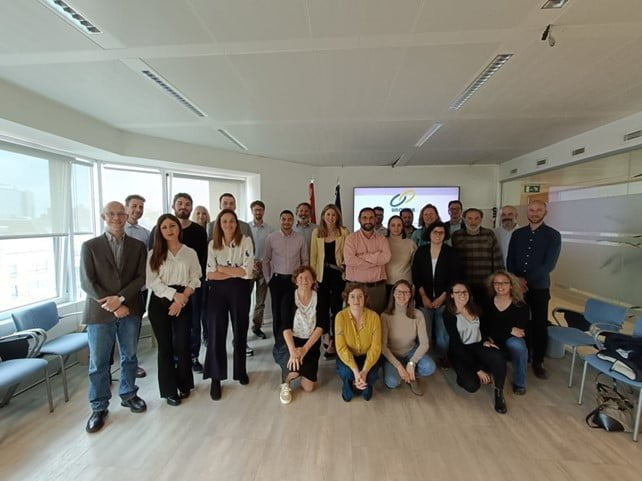
A new EU-funded project on urban freight just kicked-off: UNCHAIN!
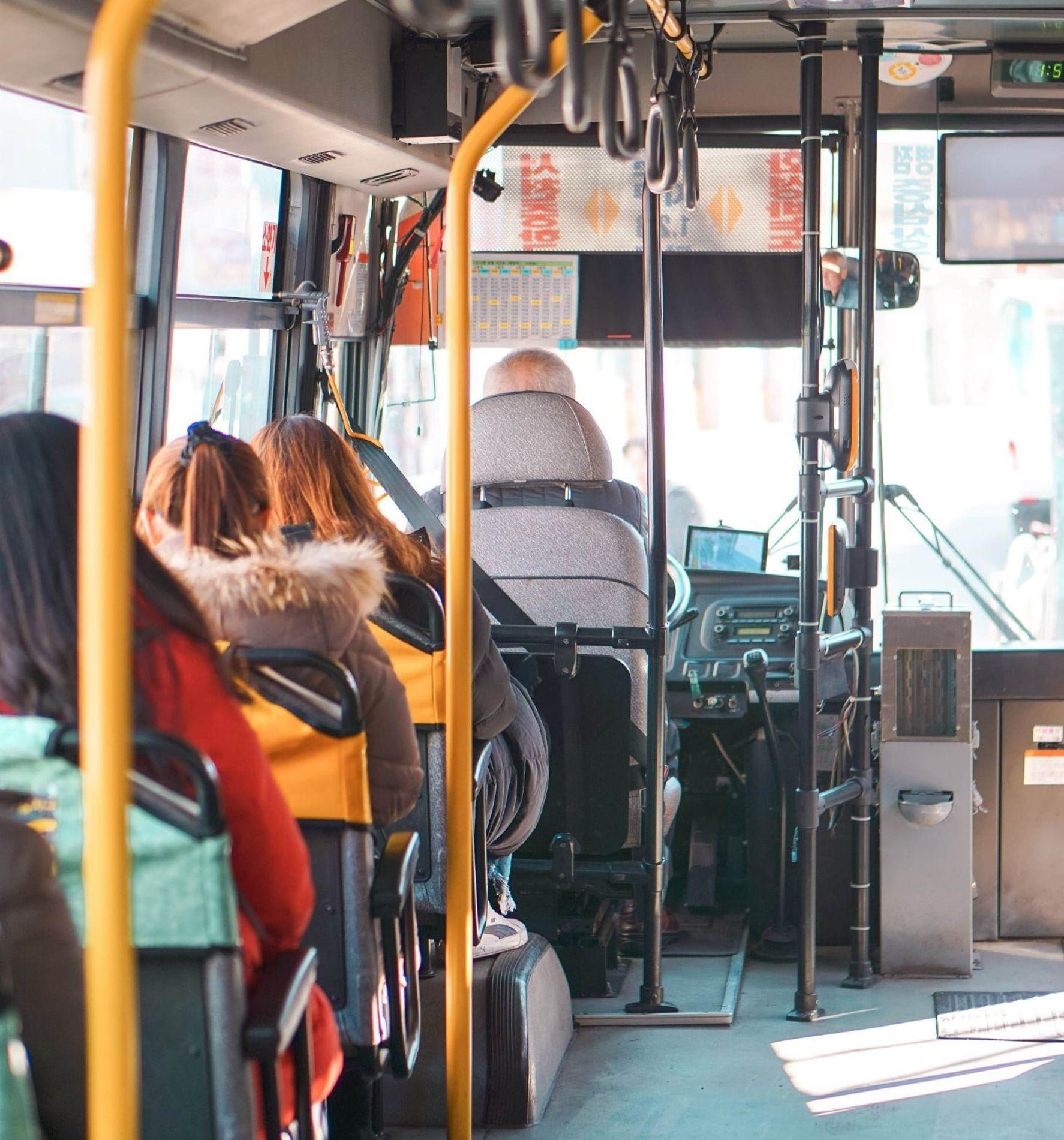
INDIMO shares key policy recommendations on inclusive transport
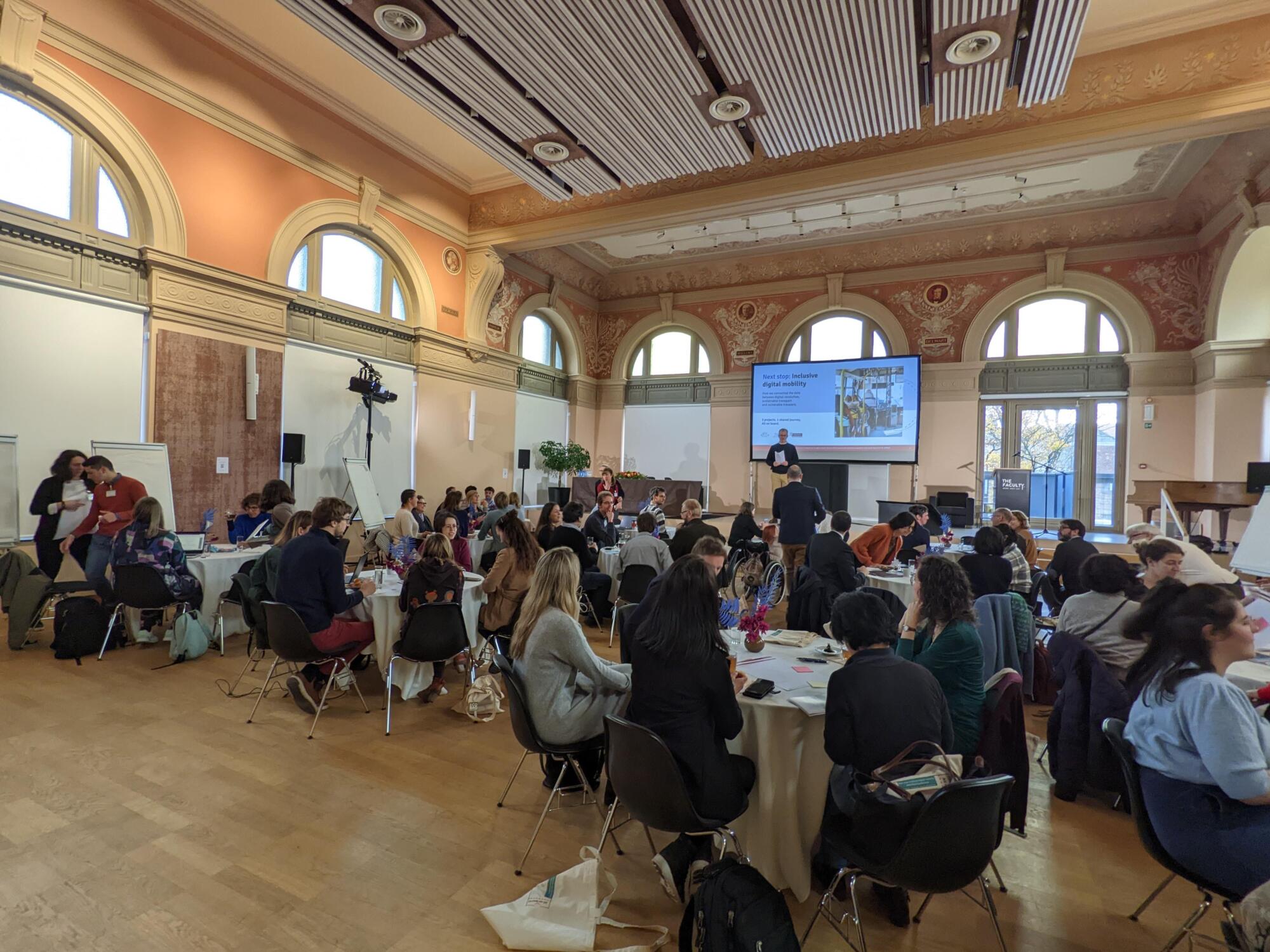
INDIMO, TRIPS, and DIGNITY joined forces in Final Conference
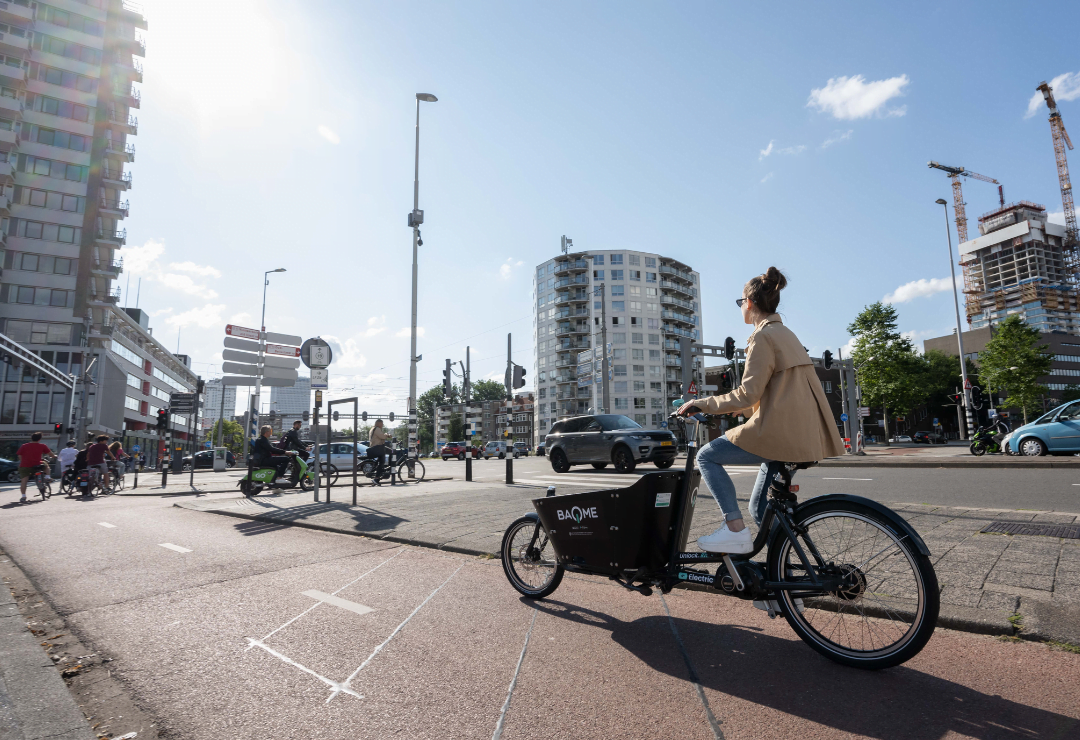
Shared mobility rules! MOBI-MIX publishes project final outcomes
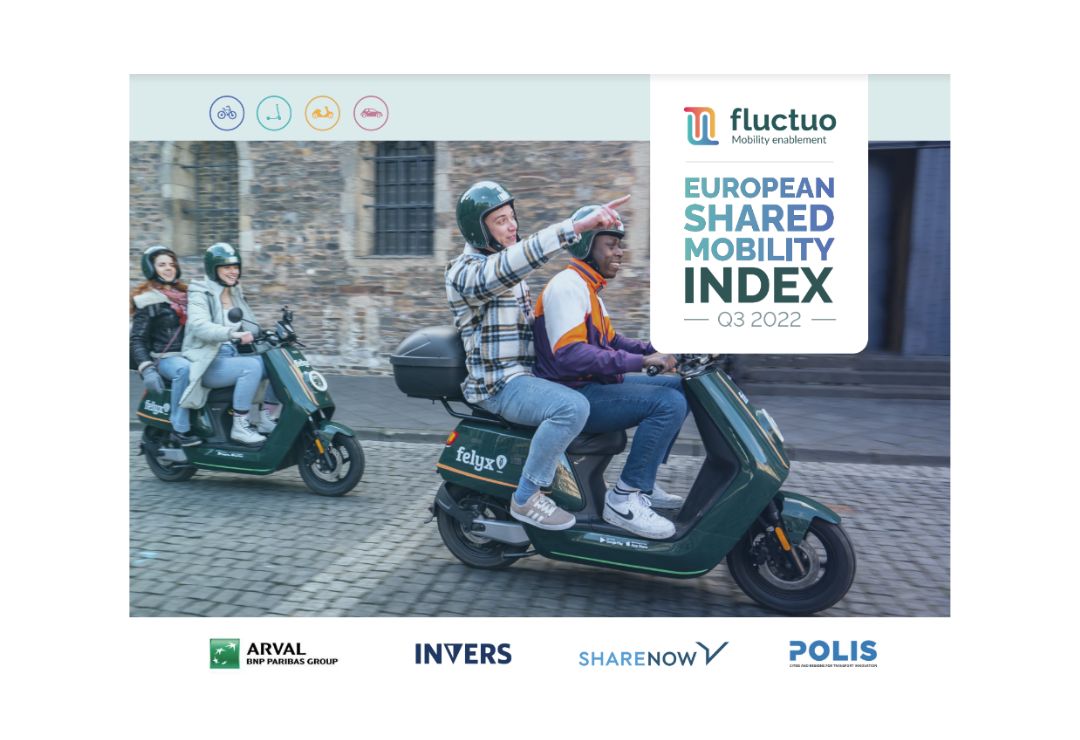
Fluctuo’s new Index proves that shared mobility is here to stay
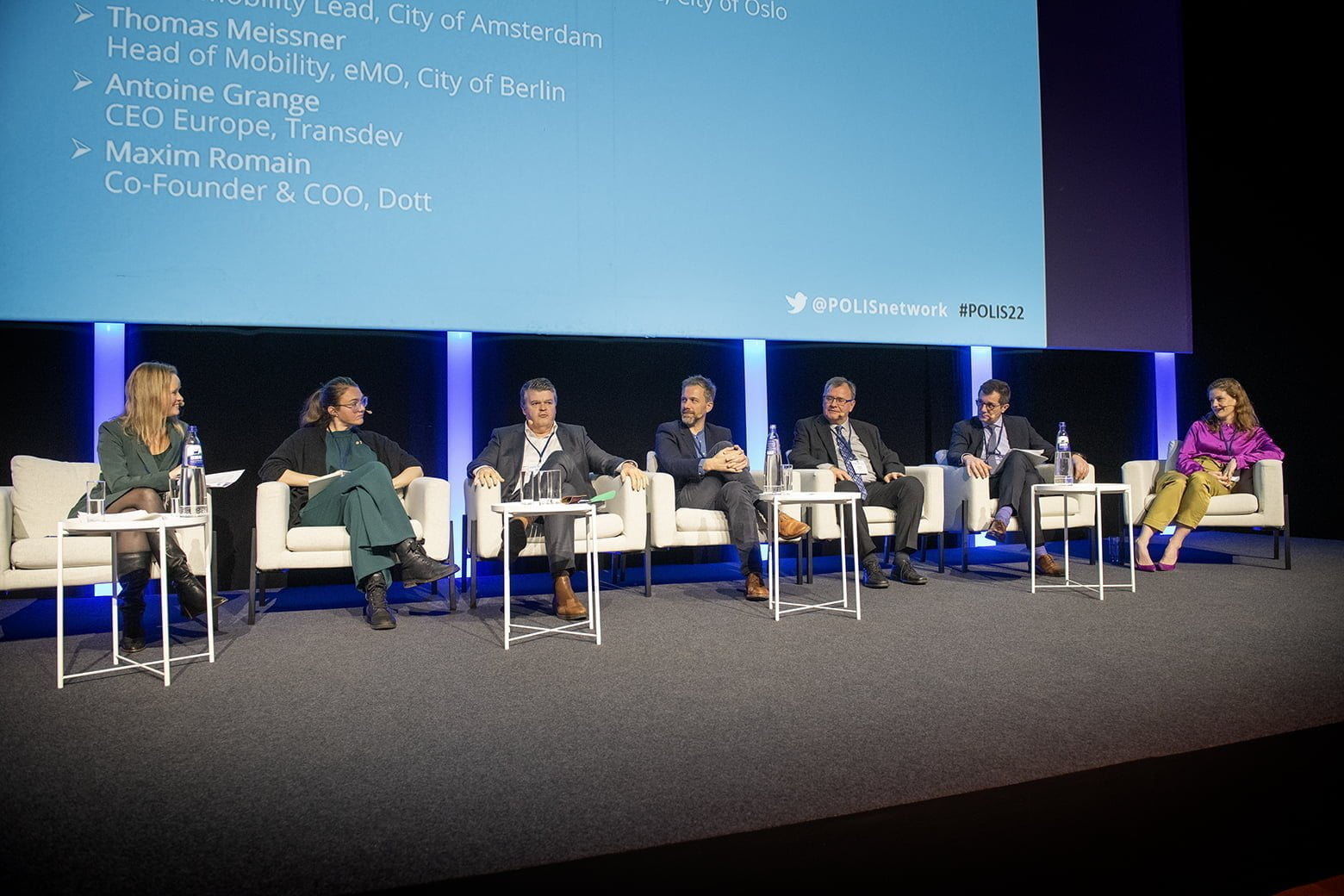
It’s full speed ahead as POLIS’ Annual Conference 2022 kicks off
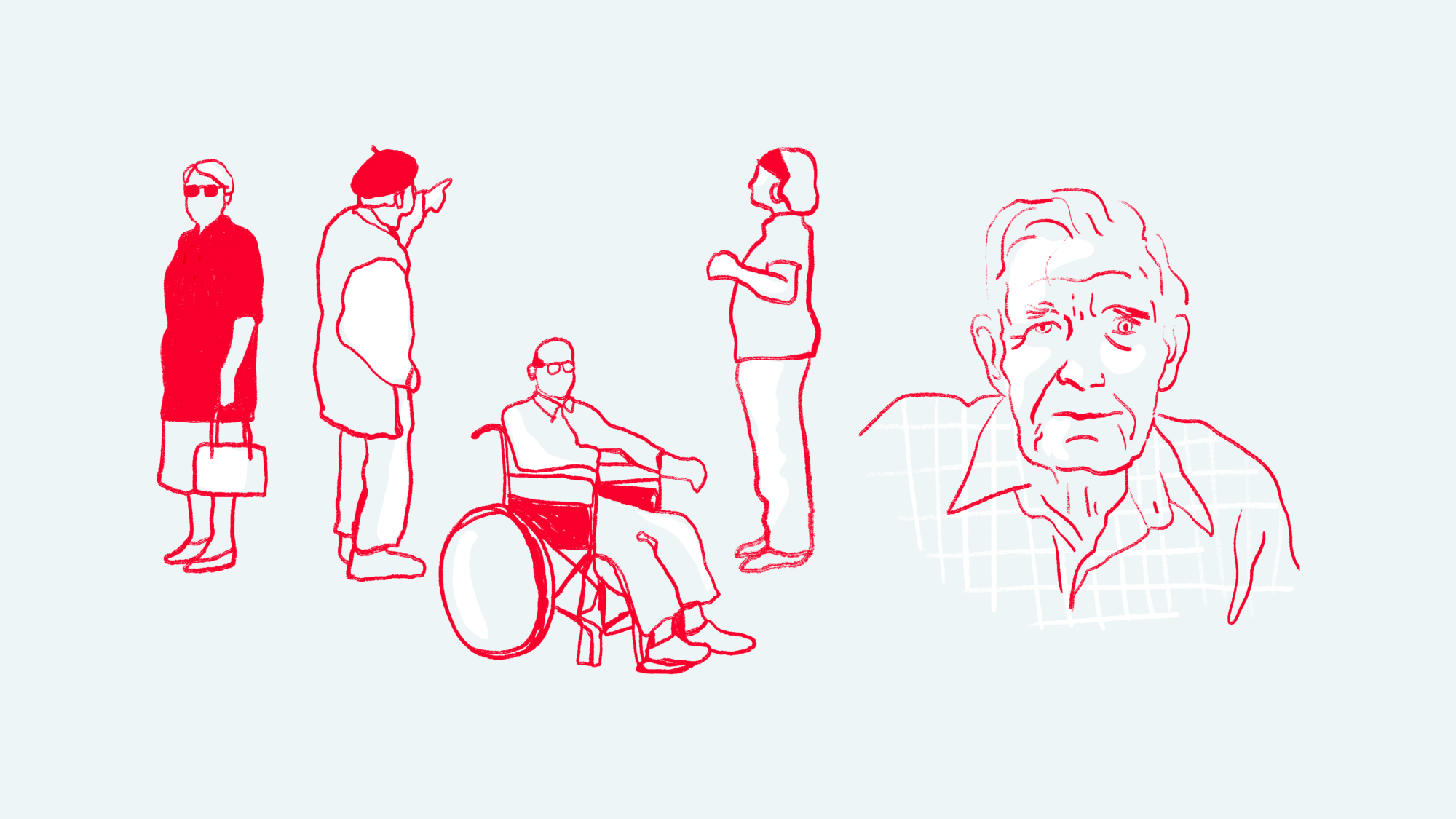
INDIMO launches promotional video!
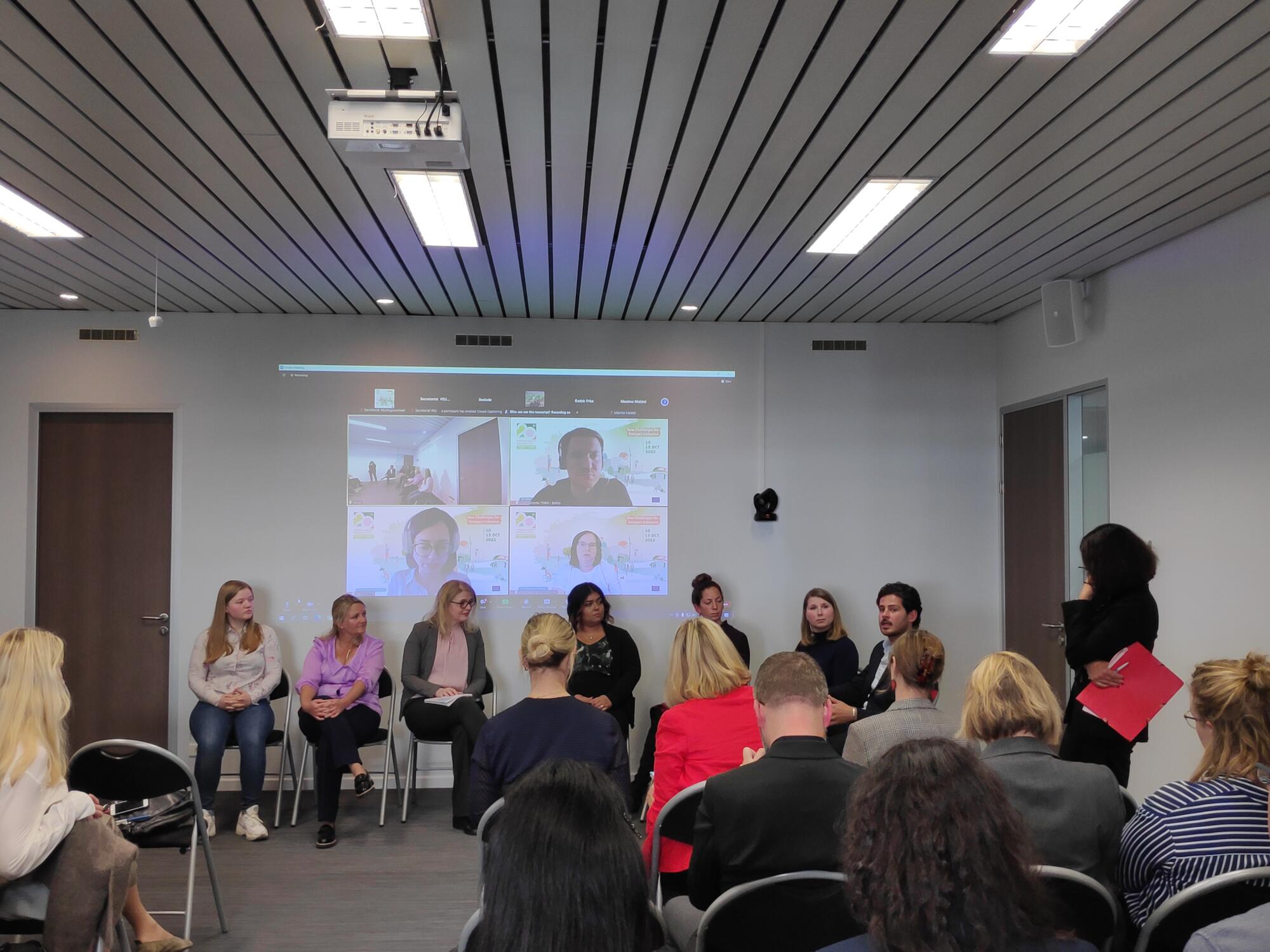
The future’s bright, the future’s young! Youth engagement in the green transition

Fluctuo releases latest European Shared Mobility Index
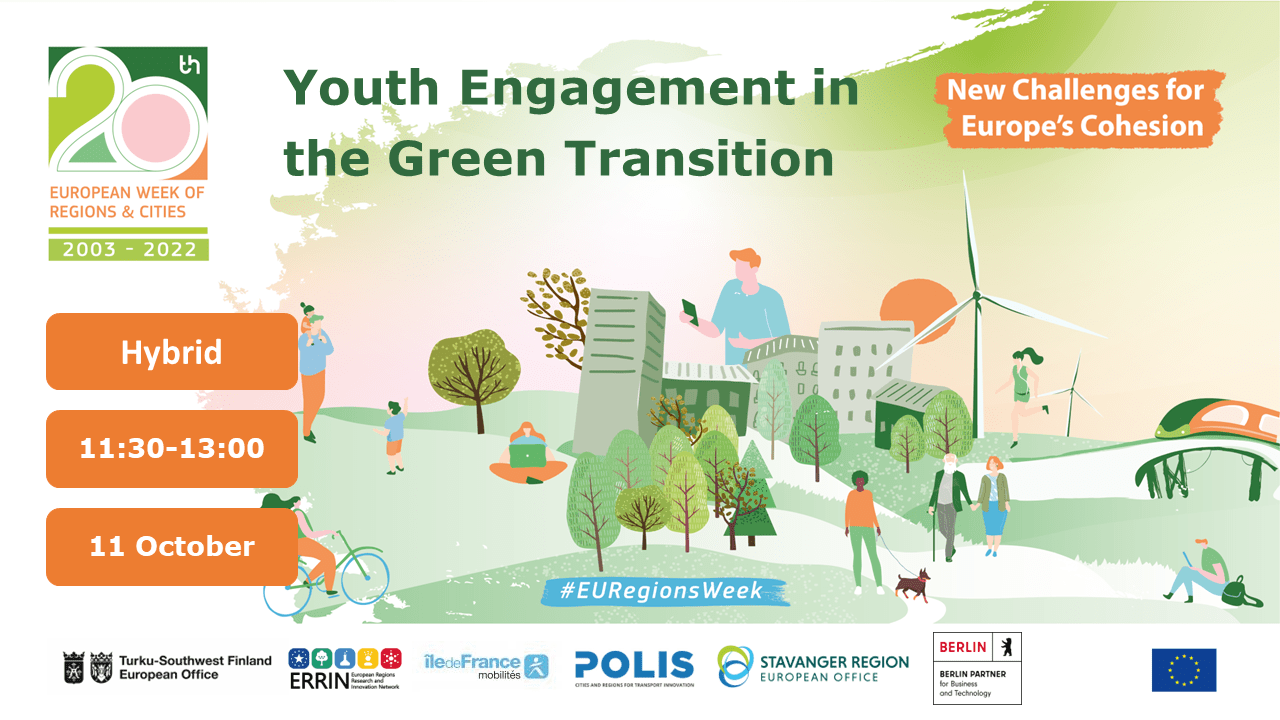
POLIS and members talk youth engagement at European Week of Regions and Cities
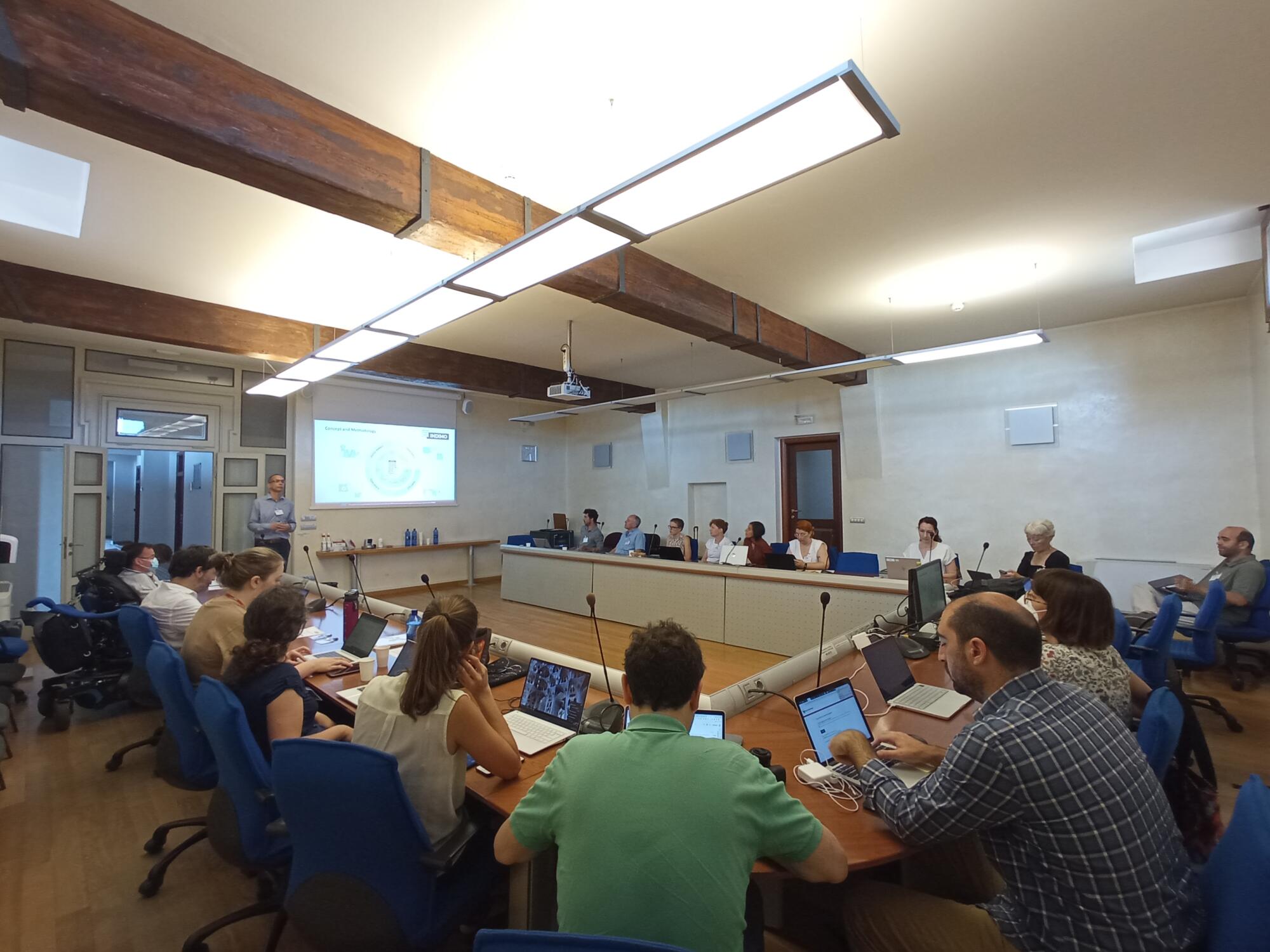
INDIMO discusses tool at 4th Co-creation Workshop
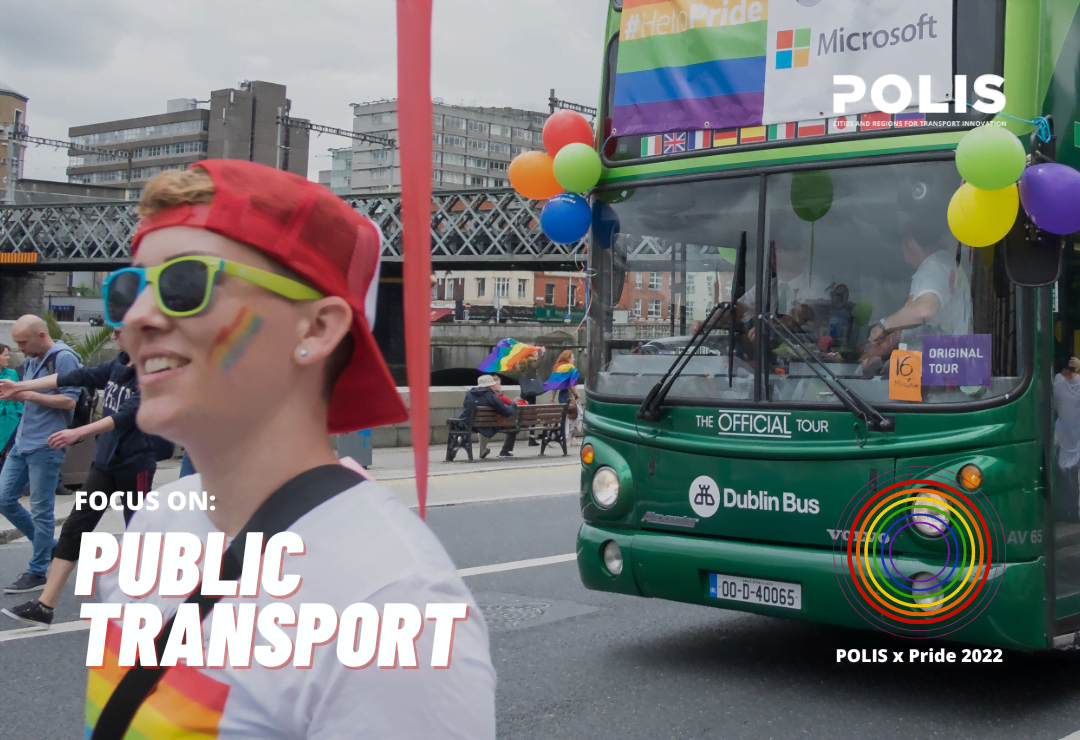
POLIS x Pride 2022: Mind the queer public transport gap
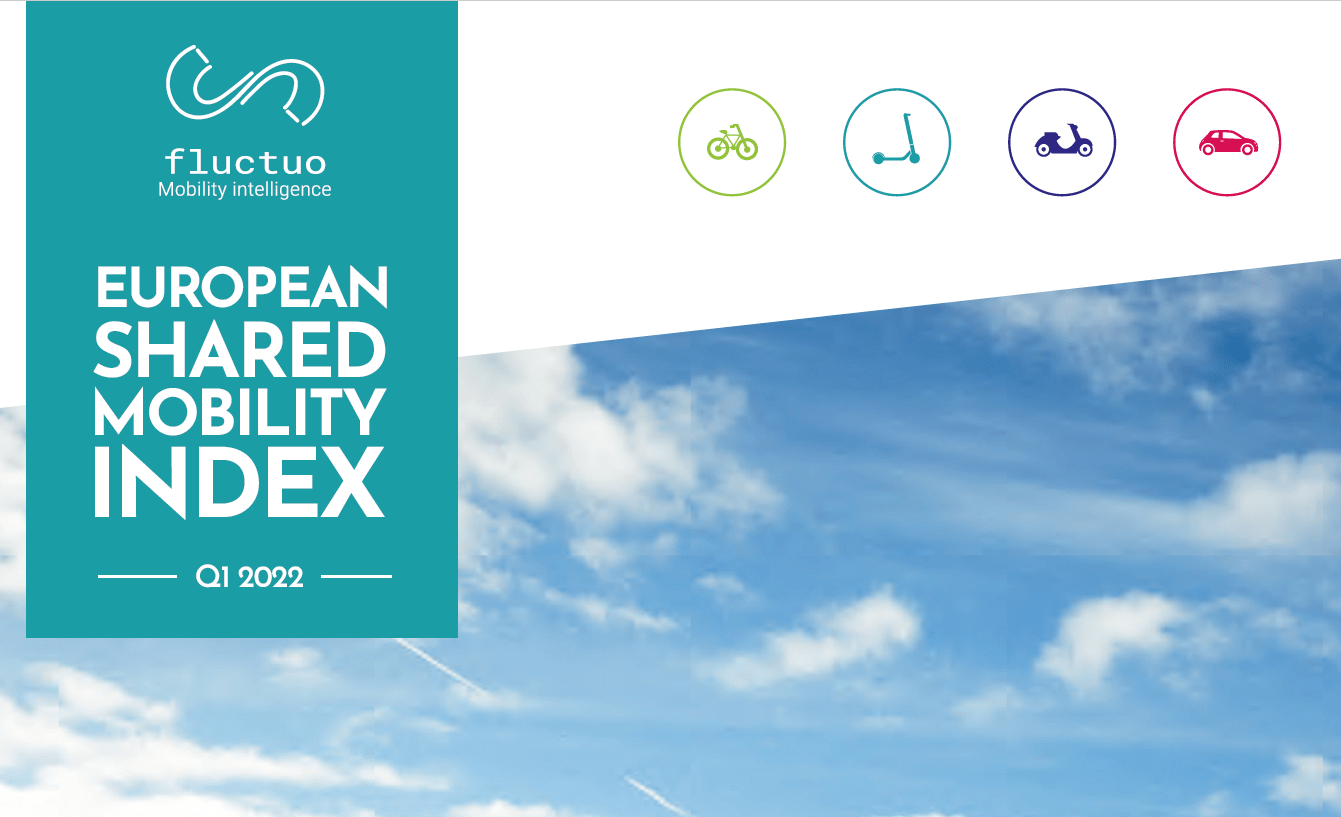
Latest European Shared Mobility Index published
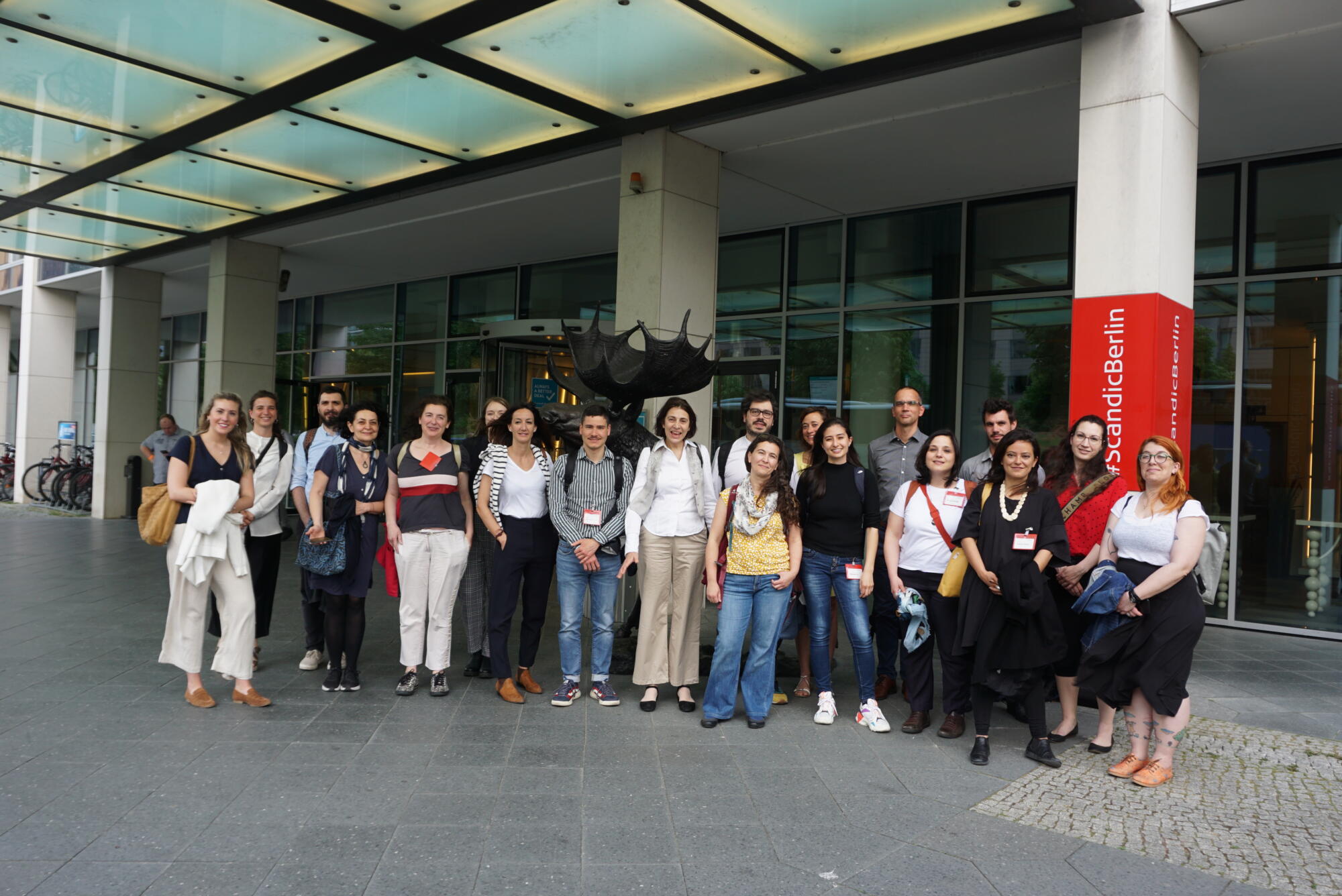
INDIMO partners gather in Berlin and hold a Design Hackathon

POLIS and Eurocities subscribe letter to European Commission about EURO 7/VII
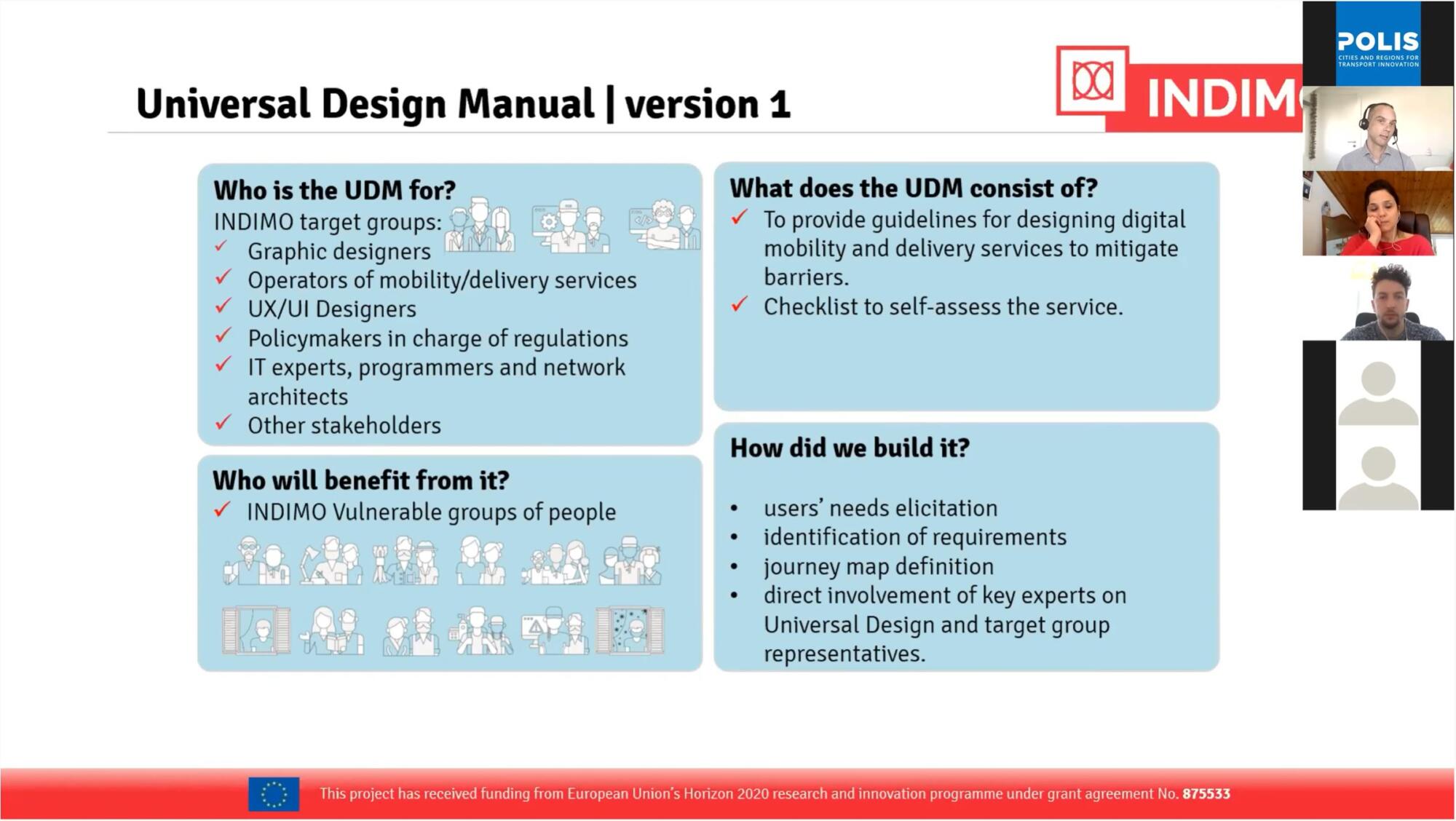
2 years of INDIMO: A total success!

Revealing a star-studded line-up for Get Our Cities Moving

Tempo 30 project in Berlin leads to better air quality
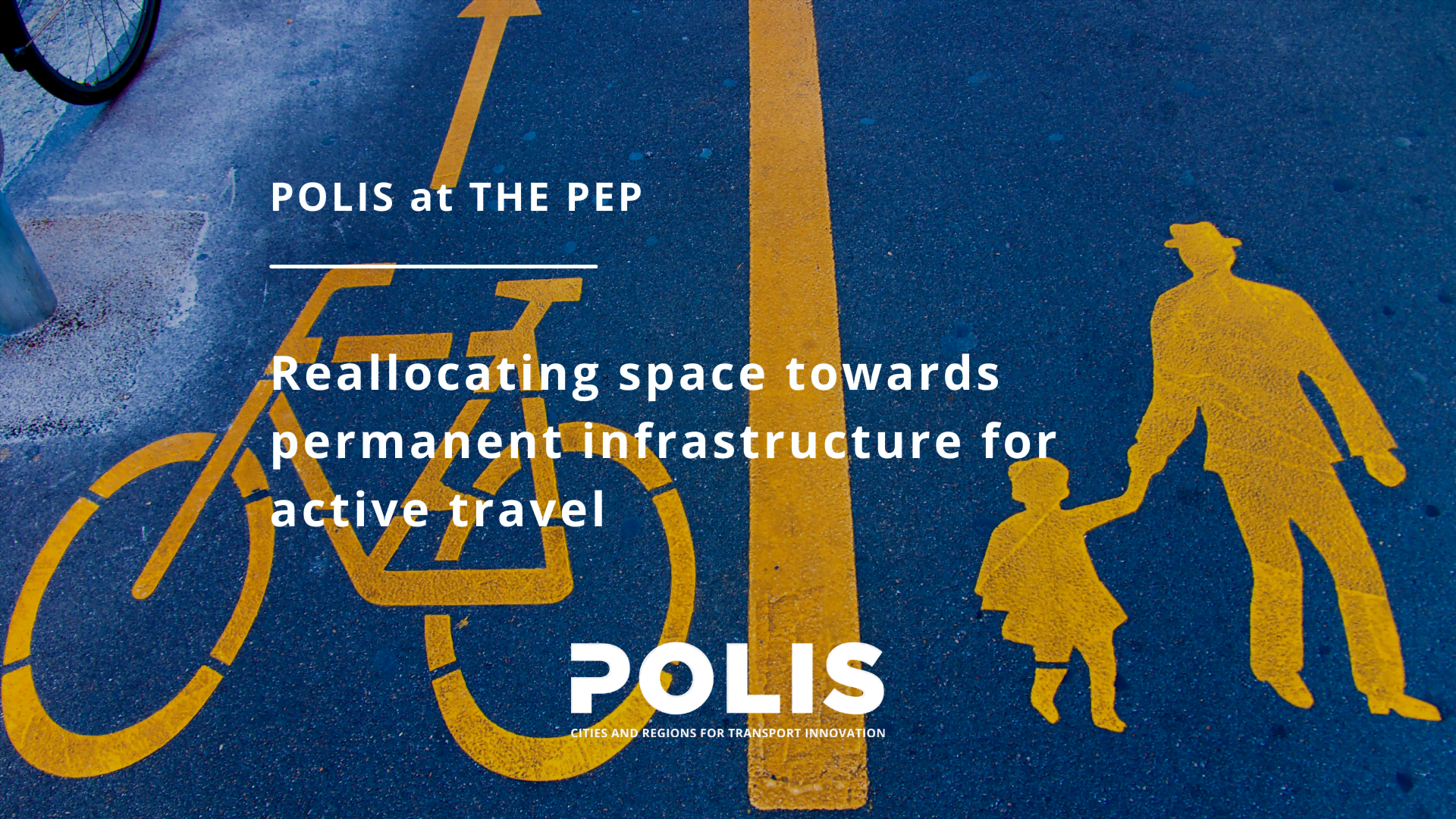
THE PEP: Reallocating space for active travel

New report provides snapshot of shared mobility industry in Europe

eCharge4Drivers opens survey on electric vehicle charging

eCharge4Drivers webinar explores the future of electric charging, with some interesting results!
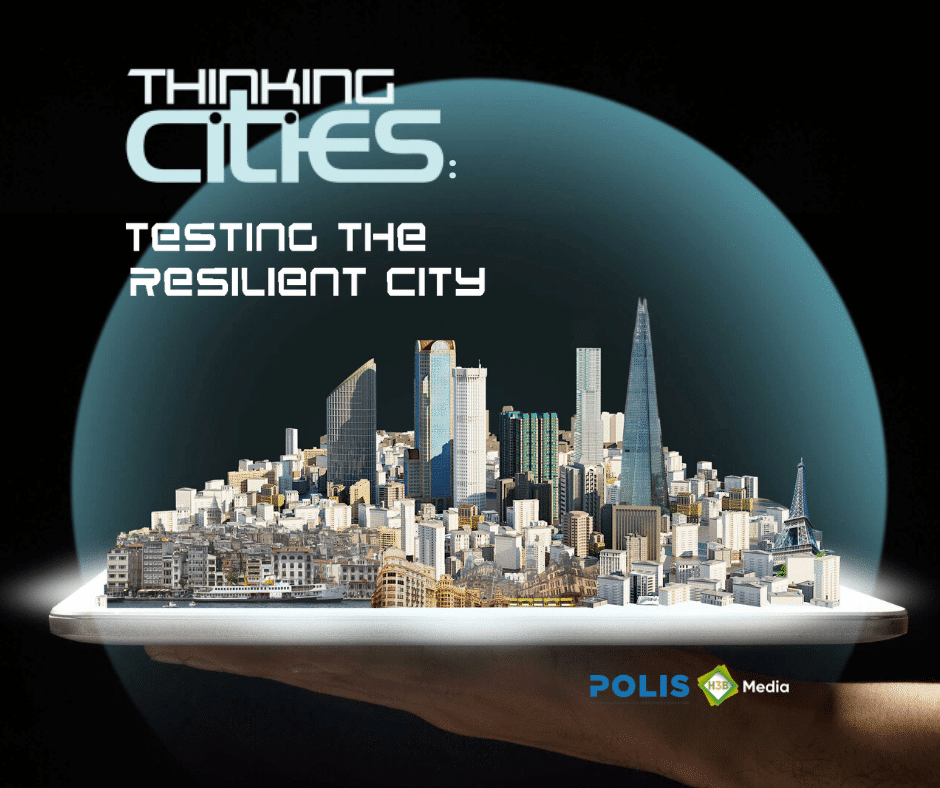
Testing the Resilient City: New edition of Thinking Cities puts spotlight on COVID

Become a host organisation for the H2020 HiReach project
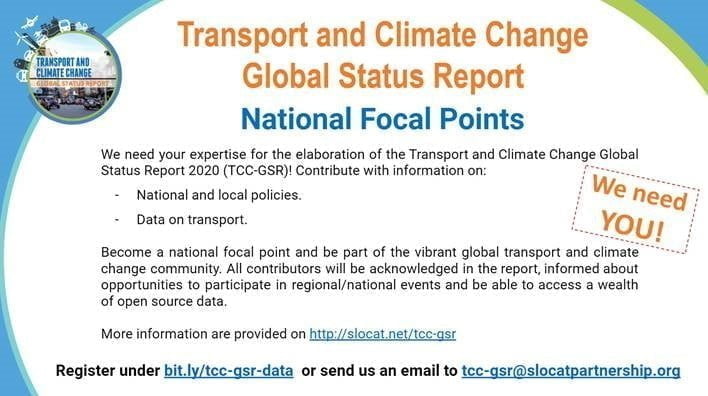
SLoCaT: National Focal Points volunteers wanted in Europe
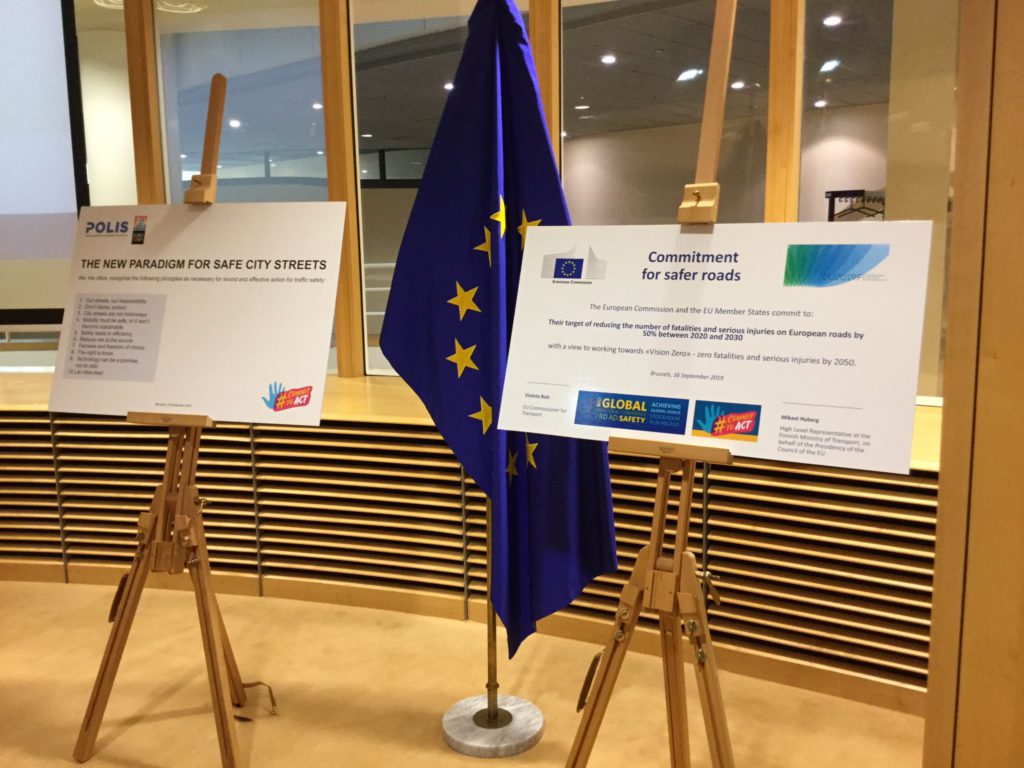
City declaration “The New Paradigm for Safe City Streets” launched today
New issue of Thinking Cities released: “Finding balance in the thinking city”

Making transport more accessible and inclusive for all: new approaches and solutions, 18 June 2019 – Groningen (NL).

Upcoming Polis Working Group meetings in 2019

Join the Transport Day 2018 at the COP24 in Katowice, Poland
Five weeks left to apply for the European Green Capital and Green Leaf Awards!
Overview of DRTs in Europe
Draft programme of 2018 Polis Conference released
EMW and SUMP Award finalist cities revealed
Invitation: ELIPTIC Multi‐purpose use of electric public transport infrastructure National Workshop (In German Language)
New issue of ‘Thinking Cities’ magazine released

MobiDataLab Datathon: solve mobility challenges with data exploitation

Amsterdam Drone Week

eCharge4Drivers EIG Workshop

5th INDIMO Co-creation Community Workshop: Transferability of the INDIMO tools to a wider European context

INDIMO Co-creation Workshop: Finalisation of the Service and Policy Evaluation Tool
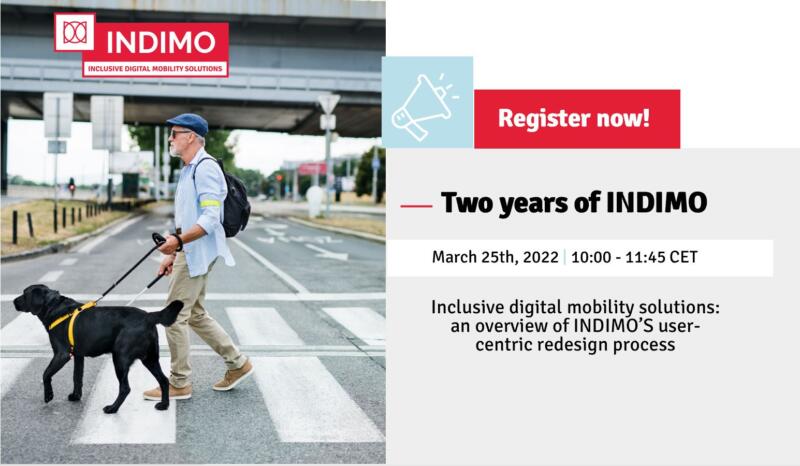
Join the second INDIMO public event “Inclusive digital mobility solutions: an overview of INDIMO’s user-centric redesign process” – 25th March
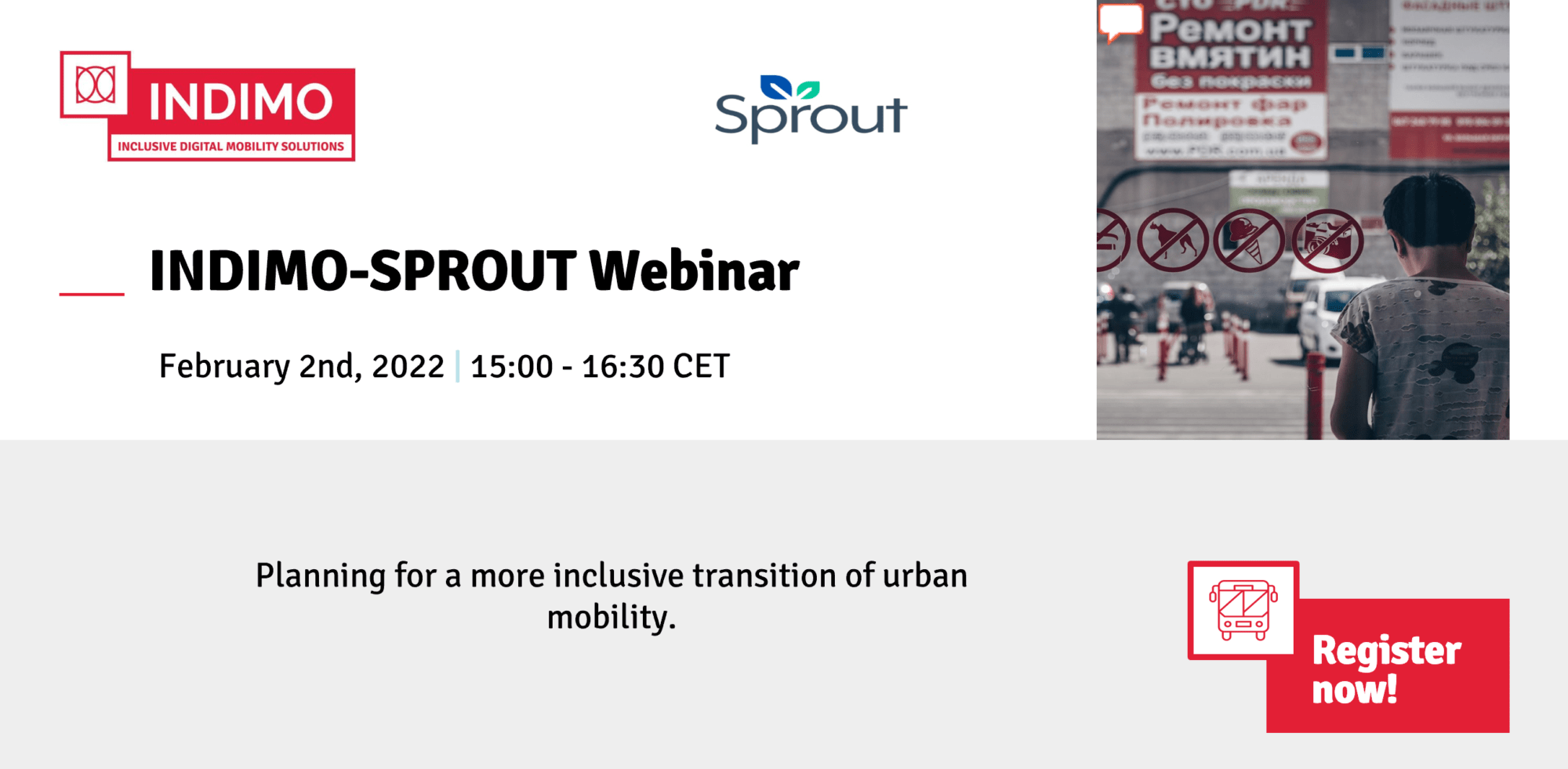
INDIMO-SPROUT Webinar: Planning for a more inclusive transition of urban mobility

Mobilising Mobility: Planning user-centric electromobility – the importance of user acceptance
Catch me if you can! – Micromobility paper
